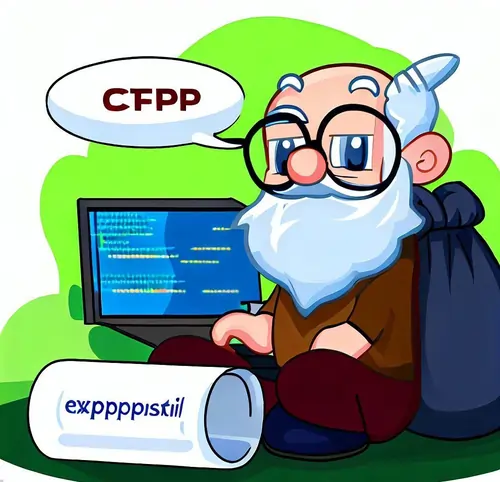Time management is critical when it comes to completing long exception handling homework assignments. Juggling multiple tasks and deadlines as a student can be exhausting. You can, however, approach your cpp assignment with confidence and reduce stress if you have the right strategies in place.
In this blog, we will look at practical time management techniques that will help you finish your long exception-handling homework quickly. We will look at topics such as planning, prioritization, breaking down the assignment, and effectively utilizing resources. Following these strategies will allow you to maximize your productivity, maintain focus, and complete your homework within the timeframe specified.
Time management is more than just working harder; it is also about working smarter. You can make the most of your available time, improve your efficiency, and achieve better results in your exception-handling homework by implementing the techniques discussed in this blog. Let's look at some strategies for effectively managing your time and excelling in your programming assignments.

Understanding the Terrain: C++ Exception Handling:
Understanding the terrain is the foundation of any successful endeavor, and the same principle applies to long Exception Handling assignments in C++. Exception handling is an essential component of any program and serves as an emergency response system when errors occur during program execution. However, understanding the essence of exception handling can be difficult, especially when dealing with complex code. So, understanding the nuances of exception handling is the first step toward efficiently completing long assignments.
Exception handling in C++ is primarily based on three keywords: try, catch, and throw. A try block is used when a section of code has the potential to throw an exception. When an exception occurs, it is 'thrown' using throw, and exceptions are handled using catch blocks. Understanding this fundamental structure is the starting point for your exploration of C++ exception handling.
Breaking the Task Down:
Understanding the task at hand is not enough; you must also break it down into manageable units. This is where the "chunking" principle comes into play. Chunking is a technique for dividing large amounts of information into smaller, more manageable chunks (or "chunks"). By using this technique on your assignment, you will not only reduce the intimidation factor associated with its size, but you will also make it more manageable.
Break down your Exception Handling assignment into smaller tasks based on different parts of the assignment. Understanding the problem statement, writing pseudocode, implementing the code, testing it, and finally debugging it are some examples. By dividing your assignment in this manner, you are effectively tackling one small task at a time, lowering your overall cognitive load and improving focus.
Making a Timetable: Time Management and Planning:
The next step is to create a work schedule now that you understand the task and have broken it down into manageable chunks. Time management and planning are essential for the successful completion of any project, including your Exception Handling assignment.
Set aside specific times to work on your assignment. Prioritize your tasks based on their complexity and your level of comfort with each one. For example, if you're confident in writing the code but need more time to understand the problem statement, set aside more time to do so.
Adopting the Pomodoro Technique, which involves working for a set amount of time (usually 25 minutes) and then taking a short (5-minute) break, can boost productivity and focus. After every four "Pomodoros," take a 15-20-minute break to refresh your mind.
Research and Resources: Knowledge's Foundation:
Once you've established a schedule, you can begin working on your assignment. You must arm yourself with relevant resources and materials to complete your Exception Handling assignment. Using books such as Stanley B. Lippman's "C++ Primer" and Scott Meyers' "Effective C++" can provide you with in-depth knowledge and practical examples of Exception Handling.
Online resources are also extremely beneficial. Websites such as Stack Overflow, Geeks for Geeks, and the official C++ documentation can provide explanations, examples, and solutions to potential problems you may encounter while working on your assignment. YouTube tutorials can help you understand Exception Handling visually and practically. Remember that the internet is a vast ocean of knowledge; make use of it.
Embracing the Debugging Art: Patience is a Virtue:
Even with the best understanding and a well-organized work schedule, bugs in your code are unavoidable. Debugging is an important part of programming and can take as long as, if not longer than, writing the code. So, how do you efficiently manage your time when debugging?
First and foremost, do not become frustrated. Debugging is a necessary step in learning and mastering programming. Every error you come across is an opportunity to learn and grow as a programmer. Be patient, and take systematic steps to identify the problem and potential solutions.
Second, employ debugging tools. The majority of IDEs include a debugger. Understanding and employing these debuggers can result in significant time savings. These tools enable you to run your program step by step, monitor variable values, and pinpoint where problems occur.
Learning from the Process: Reflection and Review:
Finally, once you've completed your assignment, take some time to reflect on and review your work. This step is frequently overlooked, but it is critical to your development as a programmer. Reflecting on what went well and what did not go as planned allows you to better understand your strengths and areas for improvement.
Take some time to go over your code once more. Is there anything you could have done better? Is there anything you now realize could have been written more readable? Learning from these will not only help you with future assignments but will also help you become a better programmer.
Exception handling in C++ can be a daunting topic, but you can manage your time effectively and complete your assignment efficiently by understanding the basics, breaking down the assignment into manageable tasks, creating a work schedule, using resources wisely, being patient during debugging, and reflecting on your work. Remember that programming is about the journey as much as it is about the destination, so enjoy the journey and learn as much as you can.
Best Practices Incorporation: Write Cleaner and More Efficient Code
Incorporating best practices while working on your Exception Handling homework can help you write cleaner, more efficient code, reducing debugging time and improving overall code quality.
Handling exceptions at the appropriate level of abstraction is one such best practice. The code that understands an error well enough to handle it intelligently is not always the same code that detected the error. Design your functions so that exceptions are propagated to a level that can handle them appropriately, reducing clutter and improving code readability.
Using exception-safe code constructs is another good practice. Exception-safe code prevents resource leaks and maintains code integrity even when an exception is thrown. To accomplish this, you can use Resource Acquisition Initialization (RAII), which encapsulates resources that require explicit handling in classes whose destructors manage those resources automatically.
Finally, when making exceptions, always provide context. To diagnose a problem, include as much relevant information as possible in your exception reports (such as what operation failed, what the inputs were, and any relevant state information).
Another strategy that can help you manage your time effectively is test-driven development (TDD). TDD requires you to write tests for your code before you write it. You start by writing a failing test, then write the bare minimum of code to pass that test, and finally refactor the code to acceptable standards.
This method has several advantages. For starters, it forces you to consider your code and its requirements before you begin coding, which can help you clarify your ideas and potentially avoid mistakes. Second, you ensure that your code is always testable by writing tests first. Finally, having a comprehensive set of tests allows you to refactor your code with confidence, knowing that any introduced bugs will be caught quickly.
Learn from Others Through Peer Review and Feedback
There is always something to learn from others, no matter how experienced you are. Consider having a peer review your work after you've completed your Exception Handling assignment. They might notice potential improvements or bugs that you overlooked, or they might propose a new approach to the problem that you hadn't considered. Be open to their feedback and willing to make changes if you want to advance as a programmer.
Regardless of the strategies and techniques described above, consistent practice and perseverance are the most important aspects of efficiently managing time to complete long Exception Handling homework (or any programming assignment). As the proverb goes, "Rome wasn't built in a day." You won't learn Exception Handling, or any other programming concept, overnight.
Make it a point to code every day, even if it's only for a few minutes. The more you practice, the better you will become acquainted with the syntax, concepts, and common pitfalls. This familiarity will reduce the amount of time it takes you to complete assignments and increase your overall productivity.
Conclusion:
Completing long exception handling homework efficiently necessitates a well-structured approach as well as effective time management skills. In this blog, we discussed various strategies for effectively managing your time while working on lengthy assignments.
You can ensure a systematic and organized approach by understanding the assignment, breaking it down into smaller tasks, and prioritizing them. Using available resources such as textbooks, online references, and expert assistance can also help you be more productive.
Remember that time management is a skill that takes practice and discipline to master. Be aware of potential distractions and create an environment conducive to focused work. Set realistic goals and deadlines, and review your progress regularly to make any necessary adjustments.
By using the time management strategies discussed in this blog, you will not only complete your long exception handling homework efficiently, but you will also gain valuable skills that will help you in your future programming endeavors. You can overcome obstacles and achieve academic success with determination, planning, and perseverance.
